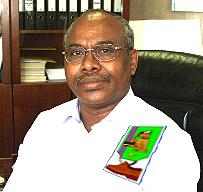12/09/05 (B315) Décidément l’EDD et en particulier la centrale de Boulaos, ne produit pas beaucoup de courant (seuls 30 % des habitants de Djibouti, reçoivent de temps à autres quelques watts ..). Mais elle fait couler beaucoup d’encre et elle consomme des budgets pharaoniques. (En anglais – Info lecteur)
__________________________________Note de l’ARDHD
Nous ne sommes pas des experts, mais on a l’impression que la Centrale de Boulaos a déjà été payée plusieurs fois par le recours à des emprunts. Où donc est passé l’argent. Devinez ?
Et quand on lit que seulement 30 % des Djiboutiens ont accès à l’électricité, on peut se poser des questions.
Rappel des emprunts depuis 4 ans : Info publié le 24/12/04 sur notre site
Energie : depuis 4 ans, EDD a bénéficié des investissements suivants :
· FADES (acquisition de 2 groupes) : 10 millions $US
· FADES & KOWEIT (acquisition de 4 groupes) : 25 millions $US
· BID (acquisition d’un groupe) : 6 millions $US
et 5 millions US$ de plus aujourd’hui. C’est la valse pour une production en forte dégradation.
 |
Un nouvel emprunt de l’EDD au motif une nouvelle fois de rénover la Centrale de Boulaos.
Mais où passe l’argent ? |
Sept. 9 2005
Press Release – OPEC Fund for International Development
The OPEC Fund for International Development today signed a US$ 5 million loan agreement with the Republic of Djibouti to co-finance rehabilitation of the Boulaos Power Station in the capital, Djibouti City . The aim of the project is to restore the plant’s electric power generating capacity and improve production efficiency so as to reduce costs and make electricity more widely available.
At present, only 30% of Djibouti’s population has access to electricity, an extremely low proportion considering that 80% of the population is urban. The current high tariffs are largely due to technical deficiencies, network losses and poorly functioning equipment, together with an over-reliance on imported diesel fuel for electricity generation. Concerns are high that this situation, if left unaddressed, will curb the country’s economic growth.
The Boualas Power Station is Djibouti’s largest, providing 89% of all electricity and serving many neighboring towns as well as the capital itself. Of the plant’s 13 diesel generators, only three are working to full capacity. The others are either out of order, functioning inefficiently or below capacity, or under testing.
The rehabilitation works will include the purchase of a new diesel generator with an installed capacity of 14 MW, together with a supply of spare parts to increase the flow of electricity from four old generators. The increased capacity will help reduce power outages and make electricity supplies more reliable, not just for domestic users but also for industry, in particular agro-industry and manufacturing. It is also envisaged that the project will enable more connections to be joined to the electricity grid in the coming years.
This is the 9th development operation to be undertaken by the OPEC Fund in Djibouti . Earlier loans include two for balance of payments support and several projects in the energy, transportation, health and education sectors.
Today’s agreement was signed in Vienna, by H .E. Mr. Ahmad Fahmi Al Hag, Advisor to the President of the Republic of Djibouti, and by H.E. Mr. Jamal Nasser Lootah, Chairman of the Governing Board of the OPEC Fund.
